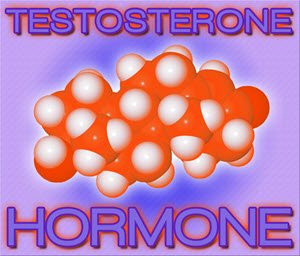I'm a 50-year-old otherwise healthy man. How can adult-onset HGH deficiency affect my sex life?
 Adult-Onset Growth Hormone Deficiency (AGHD) can have various effects on an individual's sex life, and these effects can vary from person to person. It's important to note that while AGHD can impact sexual function, it is just one of many potential factors that can influence sexual health. Here are some ways in which AGHD can affect your sex life:
Adult-Onset Growth Hormone Deficiency (AGHD) can have various effects on an individual's sex life, and these effects can vary from person to person. It's important to note that while AGHD can impact sexual function, it is just one of many potential factors that can influence sexual health. Here are some ways in which AGHD can affect your sex life:
- Reduced Libido: Some individuals with AGHD may experience a decrease in libido (sexual desire) or a reduced interest in sexual activities. This can result from hormonal imbalances and changes in overall well-being.
- Erectile Dysfunction: AGHD can contribute to erectile dysfunction (difficulty achieving or maintaining an erection) in men. Growth hormone plays a role in maintaining healthy blood flow to the genitals, and its deficiency can affect the vascular system.
- Orgasm Difficulties: Some individuals with AGHD may have difficulties achieving orgasm or may experience reduced intensity of orgasms.
- Vaginal Dryness: In women, AGHD can lead to vaginal dryness, which may cause discomfort or pain during sexual intercourse.
- Mood and Confidence: Changes in mood, such as depression or irritability, associated with AGHD can indirectly impact sexual desire and satisfaction. Reduced self-confidence and body image concerns may also affect sexual well-being.
- Energy Levels: Fatigue and reduced energy levels, common symptoms of AGHD, can impact sexual performance and interest.
 It's important to recognize that the effects of AGHD on sexual health can be complex and multifaceted. Other factors, including age, overall health, lifestyle, and psychological factors, can also play a significant role in sexual function.
It's important to recognize that the effects of AGHD on sexual health can be complex and multifaceted. Other factors, including age, overall health, lifestyle, and psychological factors, can also play a significant role in sexual function.
If you suspect that AGHD is affecting your sex life, it's essential to consult with our clinic. We can evaluate your hormone levels, overall health, and any specific sexual concerns you may have. Hormone replacement therapy with bioidentical synthetic growth hormone (GH) may be recommended if AGHD is diagnosed and contributing to sexual issues. Additionally, addressing psychological factors and maintaining a healthy lifestyle can also help improve sexual well-being.
Open and honest communication with us about your sexual health concerns is crucial, as it can lead to appropriate diagnosis and treatment options to address any issues you may be experiencing. We are here to help.
I don't understand how a hormone can change my mood or irritability. Can you explain that?
 Hormones, including growth hormone (GH), can influence mood and emotional well-being because they play a role in regulating various physiological and biochemical processes in the body, including those in the brain. Here's how hormones like GH can affect mood and irritability:
Hormones, including growth hormone (GH), can influence mood and emotional well-being because they play a role in regulating various physiological and biochemical processes in the body, including those in the brain. Here's how hormones like GH can affect mood and irritability:
- Neurotransmitter Regulation: Hormones can affect the production and activity of neurotransmitters, which are chemical messengers in the brain that play a central role in regulating mood and emotions. For example, serotonin is a neurotransmitter associated with feelings of well-being and happiness. Hormonal imbalances, including GH deficiency, can impact the levels and activity of neurotransmitters, potentially leading to changes in mood.
- Brain Structure and Function: Hormones can influence the structure and function of brain regions involved in mood regulation. GH receptors are found in various areas of the brain, and GH can affect the development and maintenance of neural pathways and circuits that control mood and emotions.
- Stress Response: Hormones can modulate the body's response to stress. GH deficiency can lead to an altered stress response, making individuals more susceptible to stress and its negative emotional effects.
- Sleep Regulation: Hormones, including GH, can influence sleep patterns. Poor sleep quality or insufficient sleep can lead to mood disturbances, irritability, and reduced emotional resilience.
- Energy Levels: Hormonal imbalances, such as GH deficiency, can result in decreased energy levels and feelings of fatigue. Fatigue can contribute to irritability and changes in mood.
- Psychological Impact: Knowing that one has a hormone deficiency, or a medical condition can have a psychological impact. The awareness of a health condition and its potential effects on well-being can lead to stress, anxiety, and changes in mood.
 It's important to note that the relationship between hormones and mood is complex and can vary from person to person. Not everyone with GH deficiency will experience mood changes, and the extent of these changes can depend on the severity of the deficiency, individual differences, and other factors.
It's important to note that the relationship between hormones and mood is complex and can vary from person to person. Not everyone with GH deficiency will experience mood changes, and the extent of these changes can depend on the severity of the deficiency, individual differences, and other factors.
When individuals with GH deficiency experience mood changes or irritability, addressing the underlying hormonal imbalance through hormone replacement therapy may help alleviate these symptoms. However, it's crucial to consult with our clinic for a proper evaluation, diagnosis, and treatment recommendations tailored to your specific situation.
Contact Us Today For A Free Consultation

- Hormone Replacement Therapy for Men [Last Updated On: December 15th, 2023] [Originally Added On: January 8th, 2013]
- Growth Hormone Therapy for Adults [Last Updated On: November 30th, 2023] [Originally Added On: January 8th, 2013]
- Natural Testosterone Hormone Replacement Therapy [Last Updated On: December 2nd, 2023] [Originally Added On: January 8th, 2013]
- Hormone Replacement Therapy Side Effects [Last Updated On: November 27th, 2023] [Originally Added On: January 8th, 2013]
- Hypogonadism – Forms, Causes, and Treatments [Last Updated On: February 27th, 2024] [Originally Added On: July 7th, 2020]
- Bodybuilding Test Boosters – Video [Last Updated On: September 30th, 2020] [Originally Added On: September 30th, 2020]
- So Many Questions About HGH and Hormone Therapy! [Last Updated On: October 8th, 2024] [Originally Added On: September 21st, 2022]
- How I Almost Failed in Life – Until I Discovered HGH [Last Updated On: October 23rd, 2024] [Originally Added On: January 25th, 2023]
- Sexy Partners, Sexy Spouses, and HGH [Last Updated On: November 2nd, 2023] [Originally Added On: March 17th, 2023]
- I Want to Get Peak Athletic and Sexual Performance and I Don’t Care How I Get It! [Last Updated On: November 9th, 2023] [Originally Added On: March 23rd, 2023]
- Can I Use HGH Injections Mainly for Bodybuilding? [Last Updated On: November 9th, 2023] [Originally Added On: March 30th, 2023]
- HGH Q and A [Last Updated On: October 31st, 2024] [Originally Added On: April 28th, 2023]
- Alcohol Consumption and Your Hormone Levels [Last Updated On: October 30th, 2024] [Originally Added On: May 4th, 2023]
- Never Take More Than the Recommended Dosage! [Last Updated On: December 3rd, 2023] [Originally Added On: May 10th, 2023]
- Damage to Pituitary Gland Can Cause HGH Deficiency [Last Updated On: February 6th, 2024] [Originally Added On: May 17th, 2023]
- Budgeting for HGH Replacement Therapy [Last Updated On: February 6th, 2024] [Originally Added On: May 25th, 2023]
- Alcohol and HGH Therapy [Last Updated On: February 20th, 2024] [Originally Added On: July 11th, 2023]
- How to Get Your Life Back With Hormone Therapy – Even in Your Sixties! [Last Updated On: October 8th, 2023] [Originally Added On: September 22nd, 2023]
Word Count: 751


















